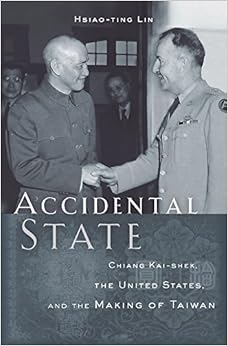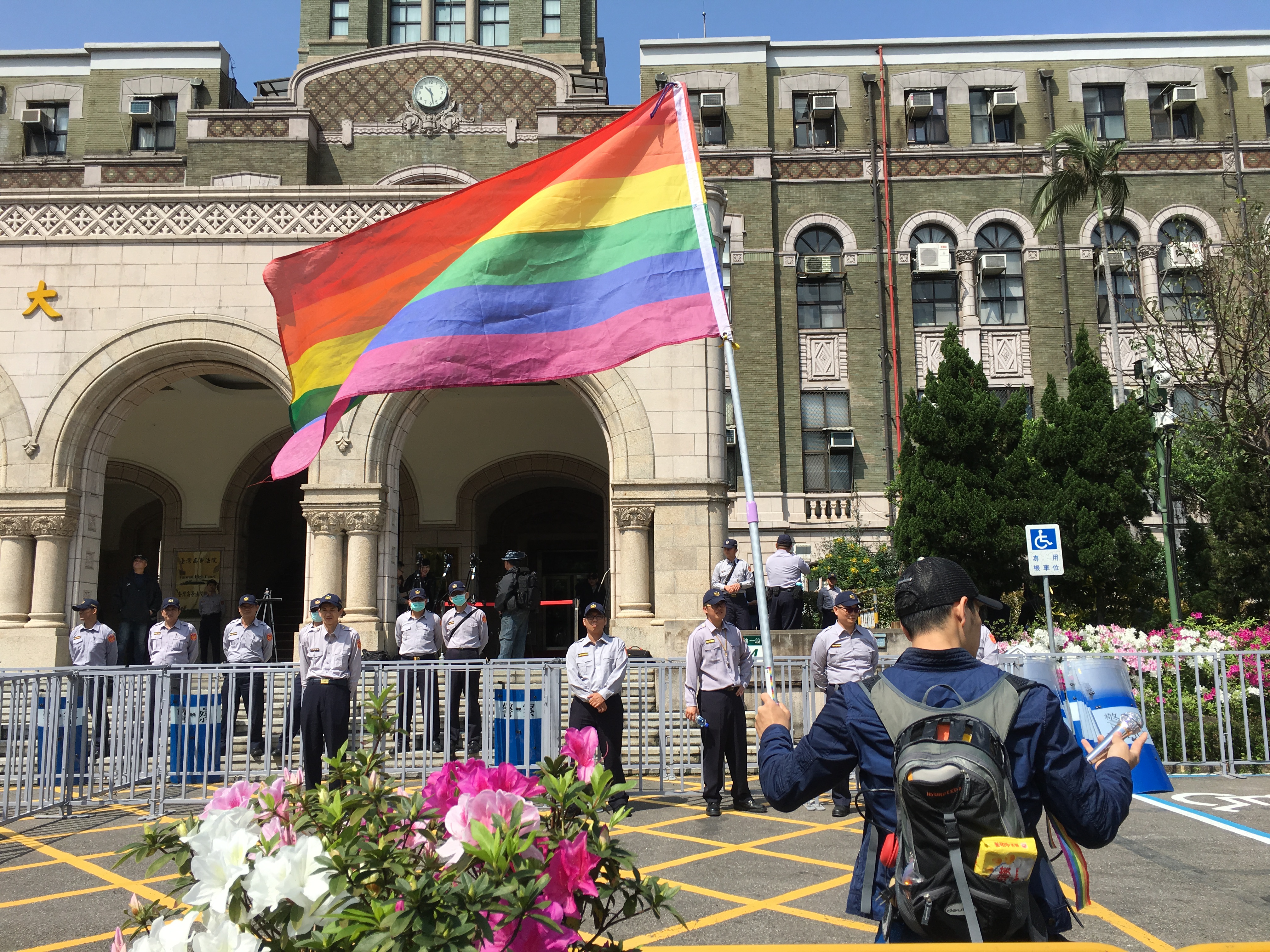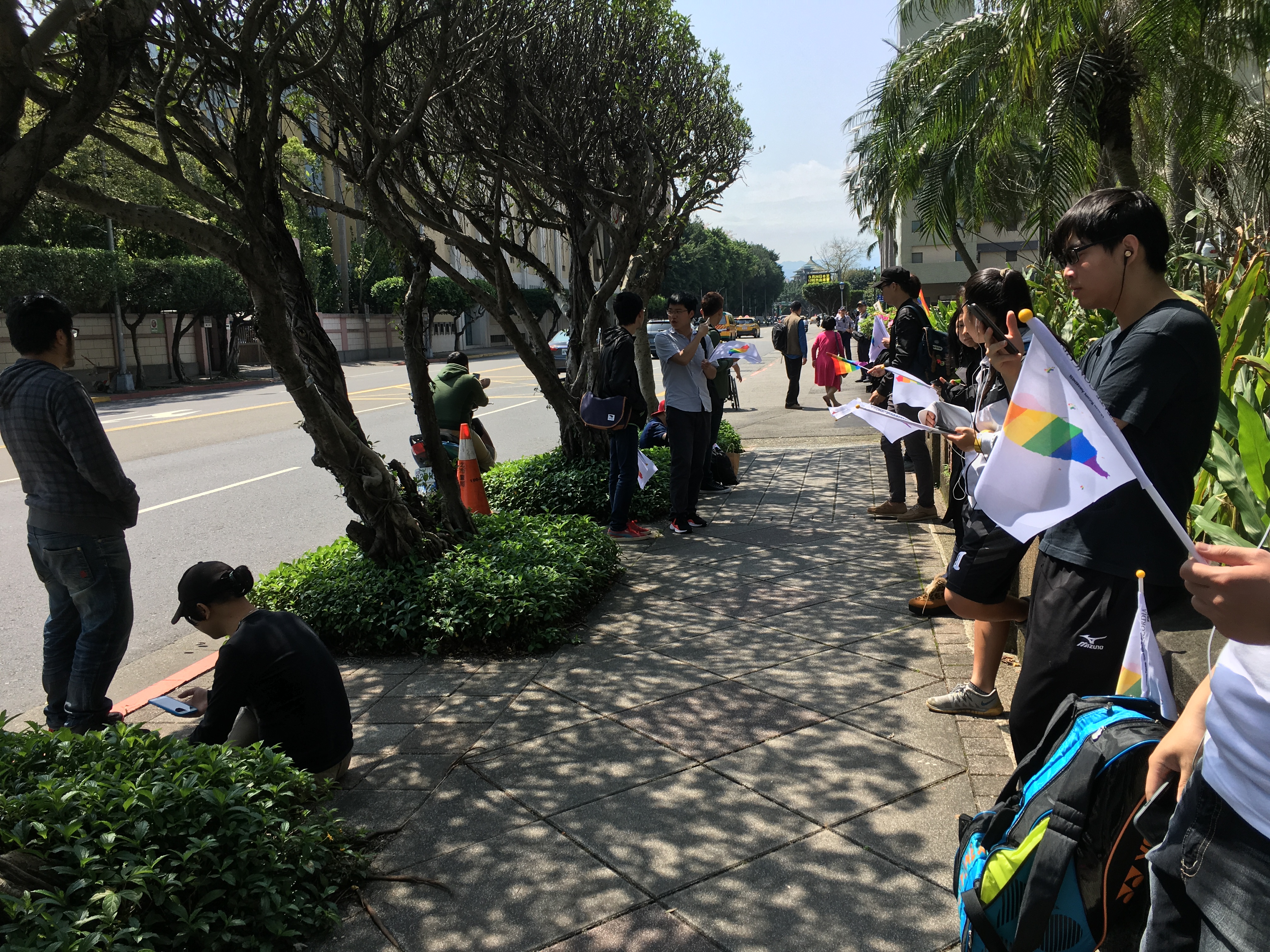You wouldn't know that from reading Taiwanese English-language media though.
Have a read through these articles, or even just check their headlines:
Same-sex marriage age to be set at 18
Cabinet mulls introducing marriage age of 18 for same-sex couples
What's your first impression upon skimming the headlines? Was it that the marriage age for same-sex couples seems like it will be different (and older) than that currently set for opposite-sex ones?
Look again at the first paragraphs (or first few paragraphs) of each:
The Executive Yuan yesterday said that its proposal to legalize same-sex marriage would set the legal age for such unions at 18 and engagement at 17, while prohibiting those within the sixth degree of consanguinity from getting married.
The Cabinet held a second ad hoc meeting to establish the goals that it is to work toward in the legislative process to legalize same-sex unions.
After reviewing the chapter in the Civil Code governing marriage, the Executive Yuan said that homosexual couples would have to be at least 18 to get married and at least 17 to become engaged, Executive Yuan Secretary-General Chen Mei-ling (陳美伶) told a news conference in Taipei.
The Civil Code stipulates that heterosexual couples must be at least 18 to be legally united and at least 16 to be engaged.
* * *
Taipei, June 14 (CNA) The Executive Yuan is considering making the minimum age at which same-sex couples can get engaged and marry 17 and 18 respectively, irrespective of gender, a Cabinet official said on Wednesday.
In fact, in the middle or at the bottom - not in the headline, not at the top - of both articles, it is clarified that the marriage age for heterosexual couples is proposed to change too, so that the age regulations will be the same no matter the sex(es) of the couple:
Chen said that the Cabinet would recommend that the legal age at which heterosexual couples can be engaged be changed to 17 so that the rules would be consistent.
* * *
Although Taiwan's Civil Code currently has a different minimum age requirement for men and women in heterosexual unions, the Executive Yuan's proposed legal amendment would make the minimum engagement and marriage age the same for homosexual and heterosexual unions, Cabinet secretary general Chen Mei-ling (陳美伶) said during a meeting.
I understand why Taipei Times and Focus Taiwan did this: marriage equality is a hot issue, and articles about it get clicks. Articles on changing the marriage age are less likely to be read - marriage age changes, especially fairly small ones, are just not that interesting. You can basically get what you need to know from the headline.
It's the same rationale behind why China seems to be horned into every single article (even headline) in the international media about Taiwan, even when it isn't in any way relevant. So we end up with stupid headlines like Tsai Ying-wen elected president of Taiwan, China angry or China likely to be upset about marriage equality in Taiwan? (I made those up, but they're pretty close to the truth). China gets clicks, Taiwan doesn't, so editors complicit in mutilating Taiwan's story in the international press shove China in there like an unlubed butt plug.
And I know this is why they do it because more than one journalist friend has told me so. They *shrug* and say "it's better that the article be published at all than it be spiked because nobody's going to read about just Taiwan." Quite literally if you want to be in the news at all you have to bend over and take it.
So it is with marriage equality, except it doesn't even come with the excuse of "if you want this news out there at all you have to accept the butt plug" that the China-shoving does. It's just put in there to be sensationalistic and get clicks over what is a relatively minor news item, which deserves to be published but maybe wasn't going to get all that many clicks anyhow...and that's okay for something that, again, is just not that interesting. It's not serving any greater purpose.
It's just as damaging domestically, however, as the China butt-plugging is internationally, if it's also happening in the Chinese-language media (it probably is, but I'm traveling right now and don't have the time to properly check. Some back-up on this would be greatly appreciated).
What articles like these do is make marriage equality seem riskier, stranger, scarier, more sensational and more 'exotic' than it really is by highlighting what the rules are likely to be for same-sex unions while downplaying that the proposals would make these rules the same for opposite-sex couples. It damages the idea of marriage equality as a step forward in human rights, in a greater application of equality for all, and, frankly, as something normal, even mundane - which it more or less has become in much of the developed world. The ruling was a big deal. Marriage equality coming to Taiwan is a big deal. Setting the marriage age and proposing to change the heterosexual marriage age to be consistent is not. Continuing to treat marriage between people of the same sex as somehow different from marriage between people of the opposite sex encourages readers to think that way, and confirms the biases of those who already do. It's not neutral and it's barely accurate.
It's not that much different from the international (and sometimes domestic) press playing up every single tremor of disapproval from China, presenting their statements without context, making everything seem more terrifying or unprecedented than it really is, instead of accurately reporting the truth on the ground, which is rather mundane: Taiwan is independent, China doesn't like that, but China can fuck right off and so far not much has really changed. It is not neutral, barely accurate (or not accurate at all), creates sensationalism and otherness where none need exist, encourages a certain thought process, and plays to biases for those who already have them. It hurts Taiwan in the same way that writing about marriage equality this way is detrimental to a broader acceptance of equality.
Going back to marriage equality, what's worse is that there does seem to be at least one problematic proposal on the table that, from the reporting, would seem to affect opposite-sex couples but not same-sex ones. From the Taipei Times article:
Same-sex couples younger than 20 who want to get married must obtain the approval of their legal guardians, or the marriage could be voided should their legal representatives file an objection, she [Chen Mei-ling] said.
This is buried about halfway down one article and not mentioned in another, and yet to me it appears to be the real news item here - unless this proposal would cover all couples equally, it is a sign that the Executive Yuan is mulling a rule that would create unequal marriage laws, which, as I've said several times, will be open to all sorts of challenges as the ruling is unambiguous in calling for equality.
But neither Focus Taiwan nor Taipei Times can seem to get their heads out of 'what'll get the most clicks' land and report actual news.



